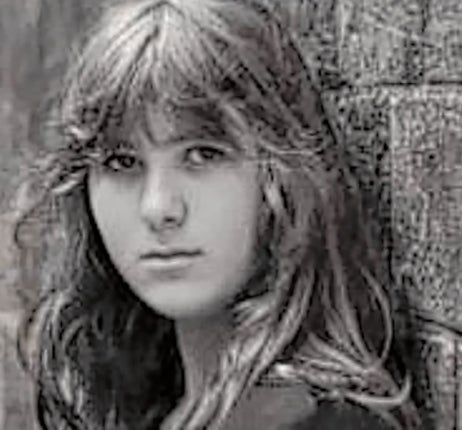Bonjour jeunesse: new French literary star Carmen Bramly is 15

Your support helps us to tell the story
From reproductive rights to climate change to Big Tech, The Independent is on the ground when the story is developing. Whether it's investigating the financials of Elon Musk's pro-Trump PAC or producing our latest documentary, 'The A Word', which shines a light on the American women fighting for reproductive rights, we know how important it is to parse out the facts from the messaging.
At such a critical moment in US history, we need reporters on the ground. Your donation allows us to keep sending journalists to speak to both sides of the story.
The Independent is trusted by Americans across the entire political spectrum. And unlike many other quality news outlets, we choose not to lock Americans out of our reporting and analysis with paywalls. We believe quality journalism should be available to everyone, paid for by those who can afford it.
Your support makes all the difference.With a flurry of new books and no literary agents to fight your corner, one way to attract attention as a novelist in France is to be a teenager. Over the next few weeks, as more than 700 novels are released in time for the annual "rentrée littéraire" Carmen Bramly will stand out from the crowd. At 15, she is this year's youngest contributor.
Her first novel, Pastel Fauve, due out next week, is about a 14-year-old girl losing her virginity and the precocious young author began working on it at the same age. It is dedicated to Pete Doherty, the musician. Mr Doherty will perhaps be gratified to learn that as well as in the dedication, he figures as a formative sexual fantasy for the protagonist of the book, although Ms Bramly says she did not base anything in the book on her own life. "I listen to his music when I write and I wanted to put him in the book," she says.
Ms Bramly is the latest in a series of strikingly young French novelists. Last year's star was Sacha Sperling, who was 18, and in 2004 Dieu est une femme hit the bookstores, the work of the 14-year-old Ariane Fornia.
As there are no literary agents in France, publishers tend to print a large selection of books very cheaply, a system which means young writers are more likely to be published. Ms Bramly, who claims to have been writing stories and poems "from an early age", says she just sent her manuscript to a publisher et voilà. She trained herself she claims, to get up every morning at 6am and write for an hour before school. "I started writing because I was bored and alone a lot of the time," she says, adding that she has already started on her second book.
But it may not have been a complete disadvantage to have famous parents who are writers. Le Figaro newspaper commented pointedly about Ms Bramly's book deal: "The first question that springs to mind: how was she discovered?". Ms Bramly's father, Serge Bramly won the Interallié prize in 2008 and is one of the stars of the JC Lattès publishing house, which is bringing out his daughter's book. Likewise, Ms Fornia is the daughter of Eric Besson, the immigration minister, and Mr Sperling is the son of film directors Alexandre Arcady and Diane Kurys.
Le Figaro pointed out strong autobiographical elements across the sub-genre. Both the protagonists as well as the authors tend to spend a lot of time in Paris's wealthy sixth arrondissement grappling with problems that arise in the capital's best lycées.
The newspaper commented how striking it was that the so-called new blood of French literature is peddling autobiographical fiction just as their elders are turning away from such navel-gazing. The teenagers may simply be following the adage that writing about what you know gives you a lot more free time – or at least enough time to go to school.
Teenage writing has a long tradition in France. The poet Arthur Rimbaud had done all his by the time he was 21 and Françoise Sagan was 18 when Le Figaro called her "a charming little monster" on publication of her 1954 classic, Bonjour Tristesse.
Ms Bramly's characters don't appear to take themselves as seriously as Ms Sagan's anguished and lonely Cécile. Her protagonist Paloma, 14, wonders at one point whether there will be a bottle of vodka or a box of sweets on offer when she arrives at the house of the boy she's in love with.
Literary prodigies
Daisy Ashford
In 1890, the precocious Daisy Ashford wrote a novel – The Young Visiters – at the age of nine. It was published to great fanfare in 1919 in England. She gave up writing in her teens and later worked as a secretary and ran a hotel. She tore up plans for an autobiography before she died in 1972.
Françoise Sagan
Although Sagan produced more than 40 novels and plays, her best-known took seven weeks to write and was published when she was aged 18. Bonjour Tristesse (Hello, Sadness), the story of a bored teenager, summed up teenage rebellion in postwar France. It eventually sold five million copies and was translated into 22 languages. Sagan died in 2004, aged 69. French President Jacques Chirac paid tribute, saying that France had lost one of its most brilliant and sensitive authors.
Christopher Paolini
Booksellers seized on the work of a young prodigy from Montana, whose stories of dragons and fantasy worlds have attracted a legion of young fans. Paolini, who was educated at home, wrote his first book, Eragon, at the age of 15. The book was self-published before it was picked up by a mainstream publishers and hit the top of the best-seller charts in the US. The first three books in the series have sold millions of copies.
Join our commenting forum
Join thought-provoking conversations, follow other Independent readers and see their replies
Comments